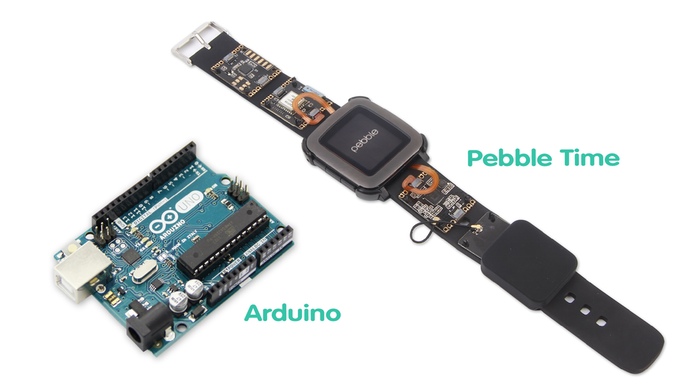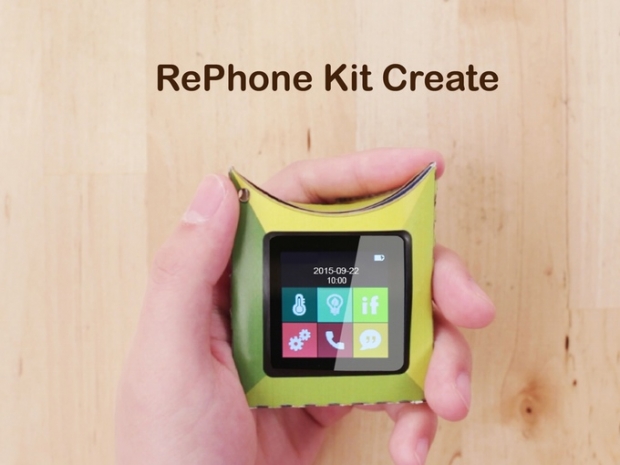This is one of the good days here at Fudzilla. Because today, we get to cover the success of an innovative and fun initiative by our friends from China. We have been following the rise of MediaTek from relative obscurity to one of the semiconductor industry's most relevant players. They've approached the very pinnacle of smartphone SoC design, right up there with Qualcomm and Samsung, and they are pursuing the IoT story quite vigorously.
Seeed Studio, on the other hand, has benefited greatly from MediaTek Labs development by introducing product after innovative product geared towards the ever expanding maker community. Rather than just sitting and waiting for the next pointer from MediaTek Labs, though, the people at Seeed Studio are really showing great imagination and initiative in making the making fun, simple and enjoyable.
After contributing to the Linkit One board, that we have written briefly about, but will surely cover in more depth as soon as time permits, Seeed Studio is now using MediaTek's Aster SoC, the smallest SoC in the world, to introduce to the world the first fully modular (smart) phone platform. It's called RePhone, and if you have even a trace of inquisitive, curious, adventurous, geeky, maker-y child left in you, you'll love it, too.
The product is on Kickstarter at the moment, hoping to achieve a very modest $50,000 funding goal. Well, we're happy to report that the campaign has smashed through that figure in mere 21 hours and is at $85,000 with 34 days to go. In all honesty, the RePhone could and would have been made even without the Kickstarter campaign, but this is a good way to raise awareness and check the pulse of the market.
So, RePhone is fully modular. That means that you can buy literally every piece of your dream phone individually. The GSM + BLE RePhone Core module, the heart of the phone, is $12. The RePhone Core Module 3G is $39, but so is the RePhone Kit Create, which consists of all the pieces you'll need to pair up with the Core Module to get to an almost fully functional phone with a touch screen. We say almost fully functional because the keyboard will be disabled at the beginning due to the small size of the touch screen, so you'll only be able to send pre-made SMS messages. You will still be able to use the numberpad for phone calls. We're sure there'll be a hacked-on keyboard very soon.

Here's the spec of the Core Module GSM+BLE itself:
The RePhone Core GSM+BLE module features the world’s smallest commercial System-on-Chip (SOC) MT2502A for Wearables and Internet Of Things.
A brief spec is as follow:
- Microcontroller: MT2502A
- MCU Core: 32-bit ARM7EJ-STM RISC processor
- RAM: 4MB
- Flash Memory: 16MB
- Power Supply: 3.3 – 4.2V
- Quad-band: 850/900/1800/1900 MHz
- GPRS: Class 12 modem
- Clock Speed: 260 MHz
- Connector: 35 PIN Connector & 11 PIN Connector for Xadow
- Interfaces: External ports for LCD, camera, I2C, SPI, UART, GPIO etc.
We're not even half way there. You can add a GPS module, NFC, gyroscope, accelerometer, LED lights and controllers for external LEDs or LED strips, actually the possibilities are basically endless.
And, just as you've been reading our article on the Pebble Time, with its support for smart straps, we are happy to report that RePhone can also be configured into a smart strap. All you need for that are 5 tiny pieces of electronics and a Pebble adapter, all of which you can get for $59.

We realise that there's a danger that this article might be seen as a bit too much marketing for one company's product. But we are honestly impressed with the Seeed Studio RePhone and can't recommend enough that you check it out. Either right now at the Kickstarter project page, with all the risks that entails, or once the crowdfunding campaign is over and the RePhone becomes available in the regular sales channel. At a bit higher price, but how much is too much for creativity, learning and fun?




